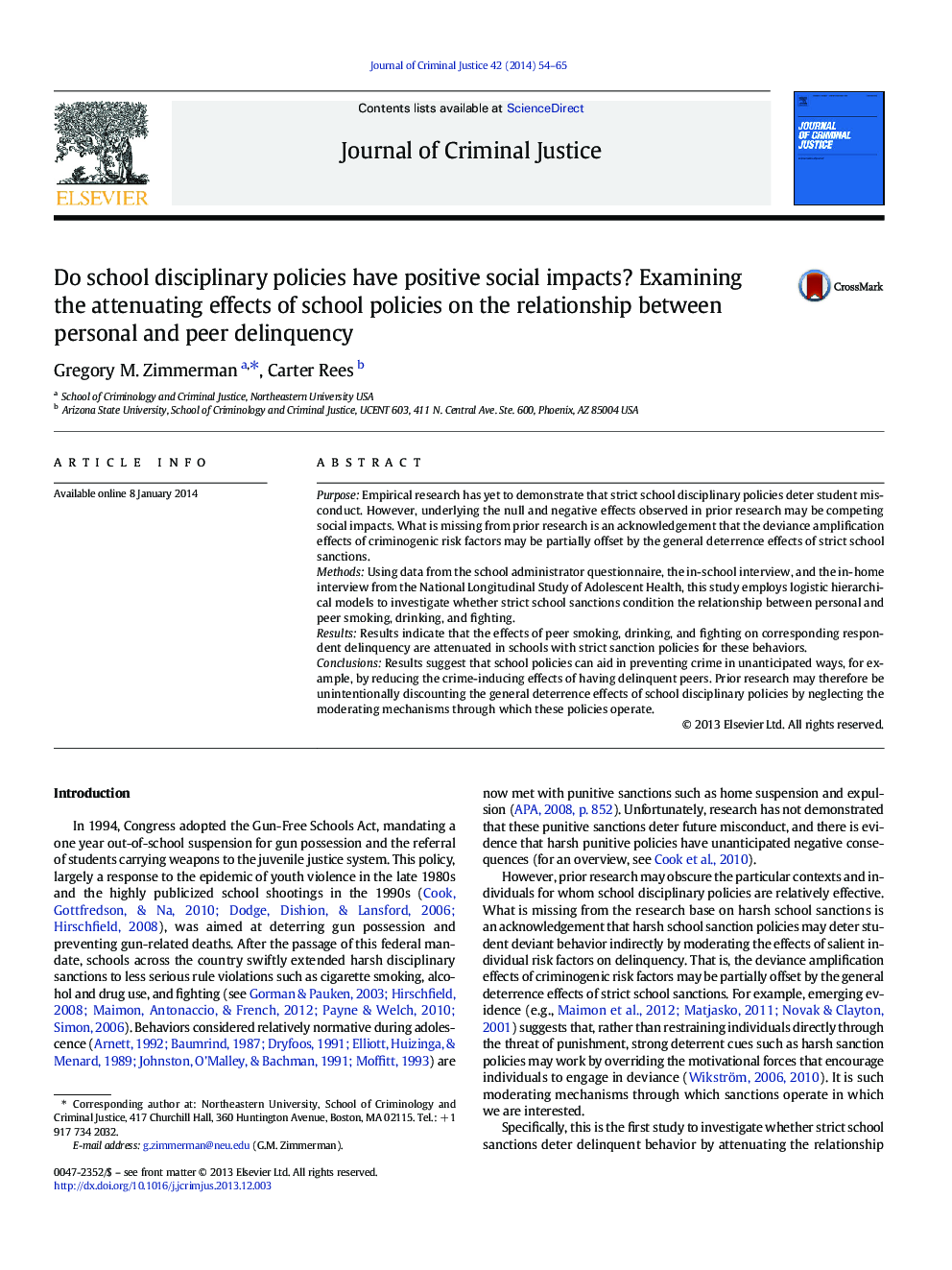| کد مقاله | کد نشریه | سال انتشار | مقاله انگلیسی | نسخه تمام متن |
|---|---|---|---|---|
| 882724 | 912016 | 2014 | 12 صفحه PDF | دانلود رایگان |
• Examine the moderating impact of school policies on the peer delinquency effect
• Strict school policies are generally unrelated to delinquency directly
• Strict school policies have a broader social impact through moderating mechanisms
• Disciplinary policies reduce the crime-inducing effects of having delinquent peers
PurposeEmpirical research has yet to demonstrate that strict school disciplinary policies deter student misconduct. However, underlying the null and negative effects observed in prior research may be competing social impacts. What is missing from prior research is an acknowledgement that the deviance amplification effects of criminogenic risk factors may be partially offset by the general deterrence effects of strict school sanctions.MethodsUsing data from the school administrator questionnaire, the in-school interview, and the in-home interview from the National Longitudinal Study of Adolescent Health, this study employs logistic hierarchical models to investigate whether strict school sanctions condition the relationship between personal and peer smoking, drinking, and fighting.ResultsResults indicate that the effects of peer smoking, drinking, and fighting on corresponding respondent delinquency are attenuated in schools with strict sanction policies for these behaviors.ConclusionsResults suggest that school policies can aid in preventing crime in unanticipated ways, for example, by reducing the crime-inducing effects of having delinquent peers. Prior research may therefore be unintentionally discounting the general deterrence effects of school disciplinary policies by neglecting the moderating mechanisms through which these policies operate.
Journal: Journal of Criminal Justice - Volume 42, Issue 1, January–February 2014, Pages 54–65
